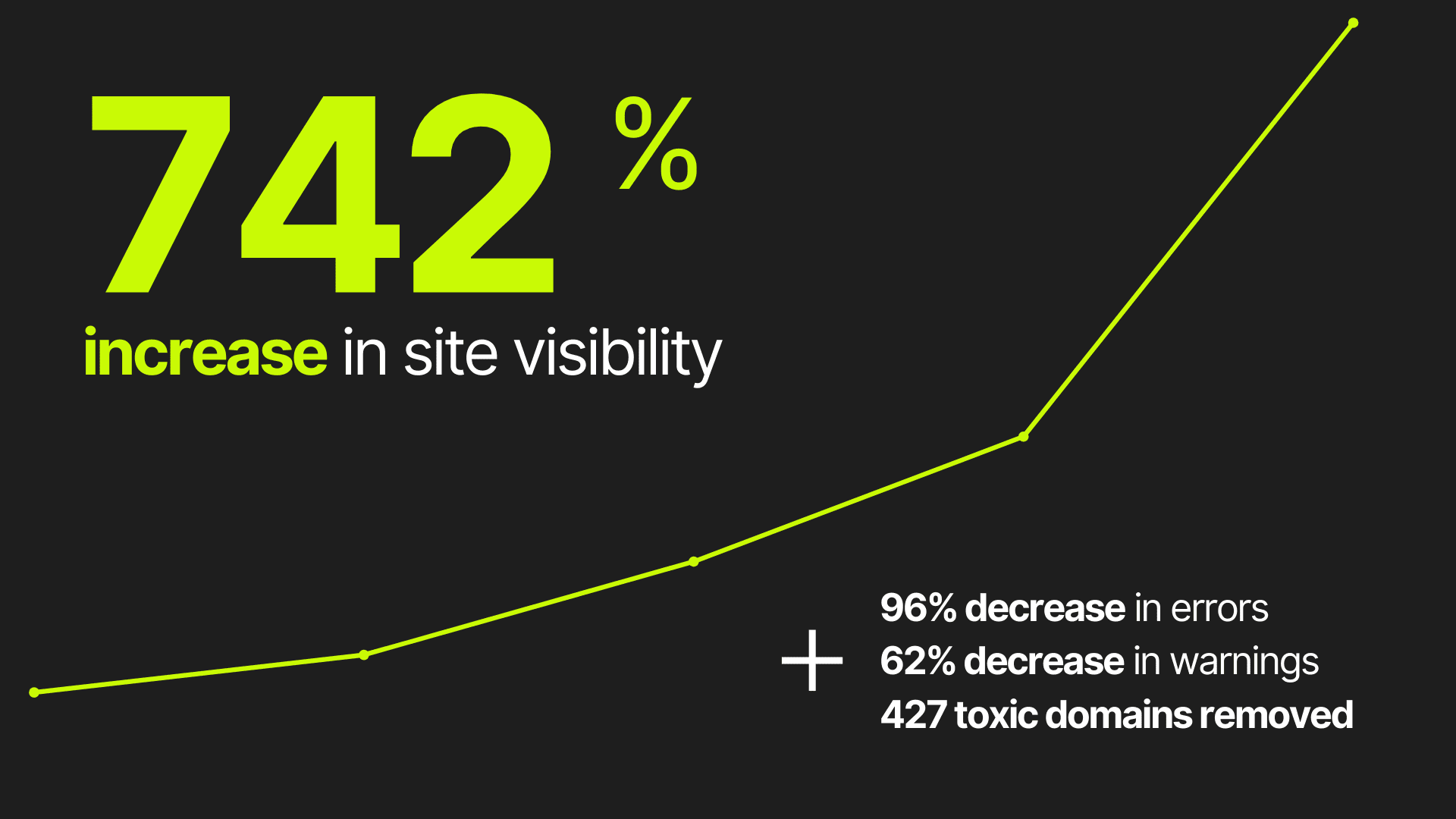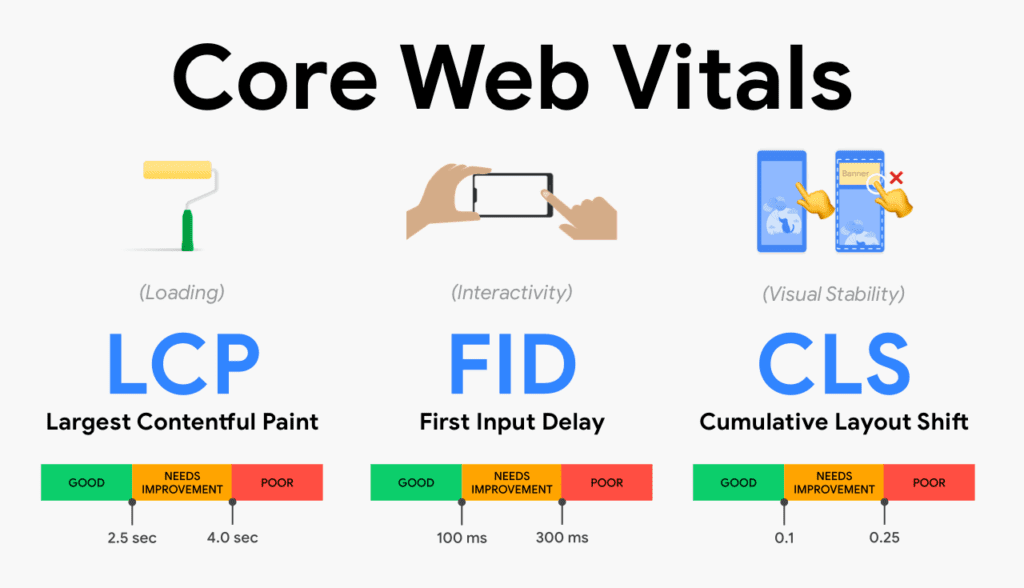If you’re invested in your brand’s marketing, staying ahead of search engine updates, competitors, and consumer behaviour is critical for success. One of the most effective ways to ensure your website is always in its best shape is through routine audits.
If you neglect regular SEO audits, you could miss out on opportunities and leave traffic, leads, and conversions for your competitors.
What Is an SEO Audit?
An audit comprehensively analyses your website’s health, covering everything from technical SEO performance to on-page content optimisation and backlink profiles. It identifies issues that could negatively impact your search engine rankings and offers actionable recommendations for improvement. But more importantly, it helps uncover growth and performance enhancement opportunities you might miss.

Why Are Routine SEO Audits So Important?
Search Algorithms Constantly Update
Google makes hundreds of updates to its search algorithms every year. Some are small, while others can drastically impact your site’s rankings.
Regular SEO audits may make you aware of changes affecting your site’s performance. Routine audits ensure that your website always aligns with the latest algorithm updates, avoiding penalties and keeping you competitive in the search results.
Hidden Technical Issues Will Damage Your Rankings
You may not notice it on the surface, but technical issues can silently harm your site’s SEO. Broken links, poor page speed, missing meta tags, and crawling errors can be noticed and significantly impact how search engines view your website. SEO audits regularly uncover these problems, allowing you to fix them before they cause lasting damage to your rankings.
For businesses just getting started with audits, our basic audit is perfect for quickly uncovering and addressing these core issues.

Optimising Old Content for New Search Trends
Search trends change as user behaviour evolves. A keyword that brought in traffic six months ago may no longer be relevant or have been overtaken by new, emerging phrases. Regular audits ensure your content stays optimised for the most relevant search terms. You can refine and update your keywords, content, and meta descriptions to stay competitive and effectively meet user intent.
Our comprehensive audit includes detailed content analysis and keyword research, helping you stay ahead of changes and trends.
Remeber, Competitors Are Constantly Improving
While your website performs well, your competitors are likely improving their SEO efforts. Regular audits help you stay on top of what competitors are doing, identify keyword or backlink gaps, and create a strategy to outperform them in search rankings. You can stay caught up with an audit and gain valuable market share.
If you operate in a competitive industry, our advanced SEO audit provides in-depth competitor analysis, helping you stay ahead.

UX Is a Ranking Factor
Google and other search engines have shifted towards ranking websites that provide excellent user experience. Core Web Vitals and metrics like page load time, interactivity, and visual stability are now essential ranking factors. If your website offers a smooth, fast, and stable experience, it could gain rankings. Regular SEO audits check for user experience issues and help improve them, ensuring your site is SEO-friendly and user-friendly.
The page experience signal measures aspects of how users perceive the experience of interacting with a web page. Optimizing for these factors makes the web more delightful for users across all web browsers and surfaces, and helps sites evolve towards user expectations on mobile. We believe this will contribute to business success on the web as users grow more engaged and can transact with less friction. – Google Search Central
How Often Should You Conduct an SEO Audit?
While it’s generally recommended to perform and advanced audit at least once a year, some businesses benefit from more frequent checks. If your website is large, complex, or in a highly competitive industry, auditing every month or quarterly may be necessary.
Staying proactive lets you catch and fix issues before they impact your rankings.
How to Prepare for an SEO Audit
Preparing for an SEO audit is essential to ensure the process is smooth and efficient. By gathering the correct information beforehand, you can help us dive straight into diagnosing issues and opportunities. Here’s a quick guide to the information required and how you can get ready for an audit:
Provide Access to Essential Tools
We’ll need access to key platforms like Google Analytics and Google Search Console to get a complete picture of your website’s performance. These tools give us valuable insights into your site’s traffic, user behaviour, and any issues flagged by search engines. Sharing access will help us evaluate additional data points, such as keyword rankings, site health, performance, and backlink profiles.
Share Your Business Goals and SEO Priorities
Every business has different SEO goals, whether it’s boosting organic traffic, improving local search visibility, or increasing conversions. Before the audit begins, it’s helpful to outline your current SEO objectives. This allows us to tailor the audit to your specific needs. If you have areas of concern like underperforming pages, a decline in rankings, or slow page speeds, be sure to share them.
Prepare a List of Competitors
Competitor analysis is a valuable part of any SEO audit. By understanding what your competitors are doing well, we can identify opportunities for you to outrank them. A list of your top competitors will help us analyse their SEO strategies and uncover gaps you can exploit.
Compile a List of Your Key Pages
Note if certain pages are critical to your business success, like product pages or cornerstone content. We’ll pay close attention to how these pages perform and offer specific recommendations to improve their rankings and conversion potential.
By preparing these key elements, you’ll ensure that the SEO audit is as comprehensive and effective as possible, delivering actionable insights that align with your goals.

The ROI of an Audit
Investing in regular SEO audits offers one of the best returns on investment for your digital marketing strategy. While an audit may seem like an additional expense, the long-term benefits outweigh the costs. Think of it as if you would only build a house or have an extension if you paid for a survey.
Here’s why regular SEO audits can significantly boost your ROI:
Preventing Major SEO Issues
Regular audits help you catch technical issues before they become costly problems. For example, a broken link or an indexing error could be noticed for months, leading to lost traffic and poor user experience. By addressing these issues early, you save yourself from needing expensive fixes down the road and ensure that your rankings and traffic remain stable.
Maximising Your Organic Traffic Potential
SEO audits reveal missed opportunities in your current strategy, such as untapped keywords or under-optimised content. By refining your approach based on audit findings, you can capture more organic traffic without increasing your paid advertising budget. This means that, over time, the ROI from your SEO efforts grows as you rank higher and draw in more visitors.
Improving Conversion Rates
A well-optimised website isn’t just about ranking higher—it’s also about converting the traffic you receive. Audits help improve both on-page SEO and user experience, ensuring your site is faster, easier to navigate, and more relevant to visitors. This often leads to higher conversion rates, meaning you’ll get more leads or sales from the traffic you already have.
Adapting to Search Engine Algorithm Changes
Search engines constantly update their algorithms, which can impact your rankings. You could be left vulnerable to sudden changes in SEO audits. By proactively auditing your site, you can stay compliant with the latest algorithm updates, keeping your website competitive and well-positioned in search results.
Cost Efficiency Over Time
Investing in regular SEO audits helps you maintain steady improvements rather than reacting to problems after they arise. This proactive approach is much more cost-effective than emergency SEO fixes or trying to recover lost traffic after a significant ranking drop. Over time, the consistent upkeep pays for itself by delivering a strong, ongoing return on your SEO investment.
In short, the cost of regular SEO audits is far outweighed by the benefits they provide regarding traffic, conversions, and long-term business growth. By ensuring your site is continually optimised and aligned with best practices, you can maximise the value of your SEO budget and secure a strong position in your industry.
Start Optimising with Regular SEO Audits Today
Incorporating regular audits into your strategy is crucial for uncovering missed opportunities, staying ahead of algorithm changes, and ensuring your website performs at its best. Whether you’re just getting started or looking for advanced strategies to maintain your competitive edge, we provide tailored SEO audit services to meet your needs.
- For foundational insights, check out our Basic SEO Audit.
- If you want a deeper analysis, explore our Comprehensive SEO Audit.
- For a high-level, in-depth review, our Advanced SEO Audit offers everything you need to stay ahead in competitive markets.
Still trying to decide which audit is right for you? For more information, visit our SEO audit services page, or book a free consultation to discuss your goals and challenges.
Frequently Asked Questions (FAQs)
How often should I conduct an SEO audit on my website?
It’s recommended that an audit be performed at least once a year. However, if your site undergoes frequent changes, operates in a competitive industry, or has experienced recent ranking drops, it’s advisable to conduct audits more frequently every quarter or even monthly.
How long does an SEO audit take to complete?
The time required to complete an SEO audit depends on your website’s complexity and the audit’s depth. Typically, a basic audit can be completed within 7 business days, a comprehensive audit within 10 business days, and an advanced audit within 10-14 business days.
What’s included in a comprehensive SEO audit?
Our Comprehensive Audit covers in-depth analysis of your website’s technical SEO, content optimisation, keyword performance, backlink profile, and competitor comparison. It provides a detailed roadmap to improve your site’s rankings and organic performance.
Do you offer free SEO audits?
No, we believe in providing detailed, data-driven audits that deliver real value. Our audits are paid services because they are tailored to your business’s needs and provide actionable insights that lead to sustainable growth. We offer Basic, Comprehensive, and Advanced audits designed to identify and address the areas where your website may be underperforming.
Can you help implement the changes recommended in the SEO audit?
Absolutely! After completing the audit, we offer ongoing SEO consultancy services to help you implement the recommendations. Whether you need full implementation or guidance for your internal team, our consultancy services ensure your website continues improving.
The Importance of Regular SEO Audits
Routine SEO audits are more than just a one-time fix. They are critical to maintaining and enhancing your website’s long-term success. As search engines continue to evolve and competition grows, staying proactive with regular audits ensures you’re always one step ahead.
Audits give you the roadmap to continuously improve your rankings and visibility, whether it’s identifying missed SEO opportunities, addressing hidden technical issues, or optimising your content for new trends.
Our advice is simple: make audits a regular part of your digital strategy. Whether you’re a small business looking for a foundational check-up or a large enterprise needing advanced, data-driven insights, we offer the proper audit to meet your needs. Our Basic, Comprehensive, and Advanced SEO Audits are designed to help you uncover issues, tap into new opportunities, and stay competitive in a rapidly changing digital landscape.
Don’t wait for your SEO to fall behind. Conduct regular audits, implement the insights, and ensure your website always performs at its best.



